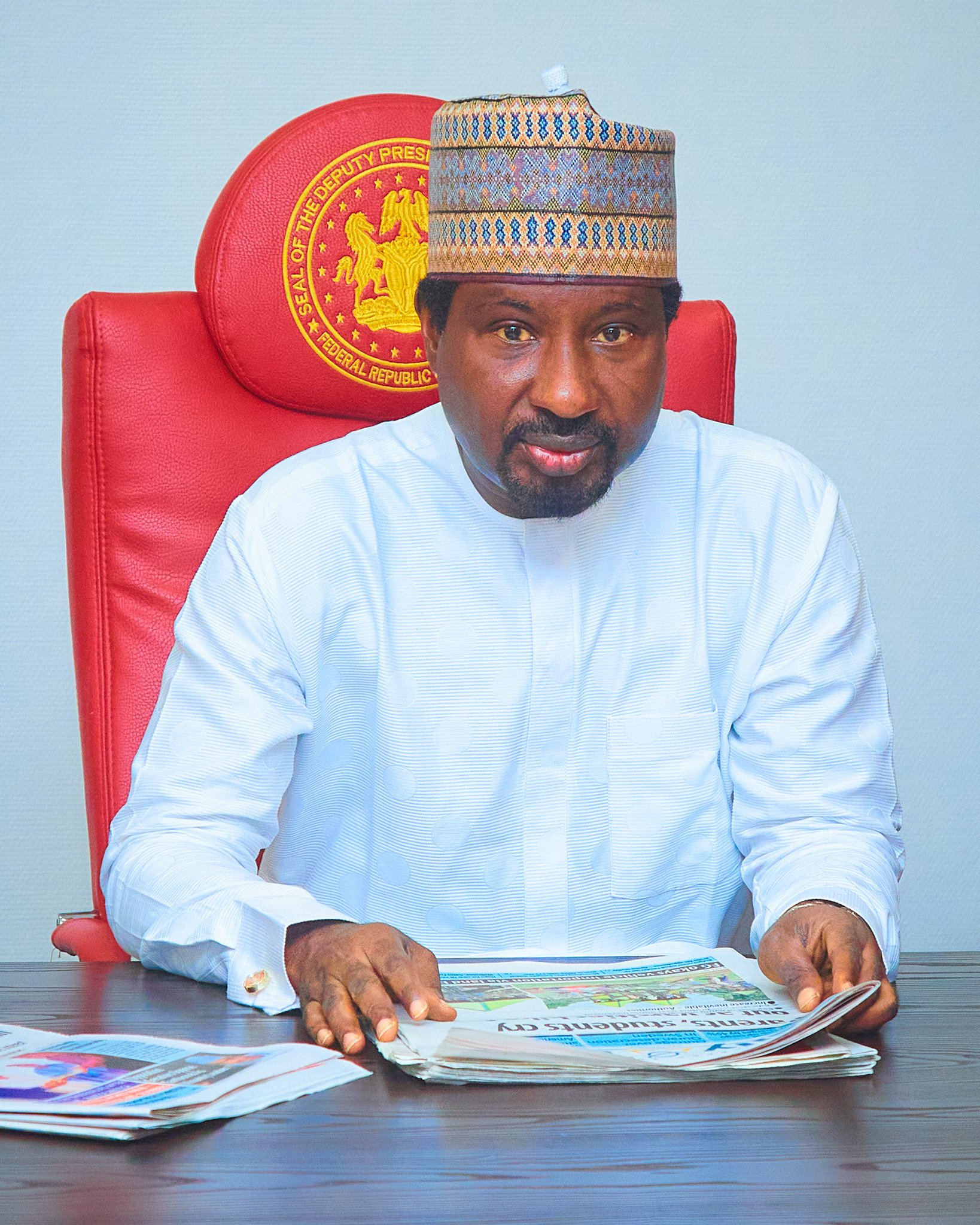News
Deputy Senate President reaffirms NASS’s commitment to oversight, says it’s the bedrock of democratic governance

Deputy President of the Senate, Senator Barau I Jibrin, has reiterated the commitment of the National Assembly to oversight, describing it as the bedrock for democratic governance.

Speaking during the 7th annual Senator Abiola Ajimobi roundtable and 75th posthumous birthday of the late former governor of Oyo State, held at the University of Ibadan on Monday, he said oversight ensures accountability, transparency, and the much-needed checks and balances which enhance the effective use of public funds.

The roundtable organised by the Senator Abiola Ajimobi Foundation (SAAF) in collaboration with the Institute for Peace and Strategies Studies, University of Ibadan, had the topic; “Legislative Oversight in Nigeria: Challenges and Prospects.”
” The role of legislative oversight in a democratic society cannot be overemphasised because it is the bedrock of democratic governance, ensuring accountability, transparency, and the much-needed checks and balances which enhance the effective use of public funds,” he said.
The Deputy President of the Senate, who is also the First Deputy Speaker of the ECOWAS Parliament, said that as the government’s watchdog, the legislature plays a crucial role in holding the executive branch accountable and ensuring that the people’s interests are being served.
” Through oversight functions, the legislature has the power to investigate government activities, evaluate policies, and monitor the implementation of programs and activities of government for which funds have been appropriated.
” As we reflect on the critical issues of national importance and the challenges and prospects of legislative oversight in Nigeria, let me use this platform to assure Nigerians that while, on the one hand, the 10th Assembly is committed to performing its duties, we equally invite constructive critique of our activities at all times,” he was quoted in a statement by his media aide, Alhaji Ismail Mudashir.
Commending the SAAF for maintaining the legacy, principle and philosophy of the late Oyo Governor through the annual roundtable, he said the selection of the topic, ” legislative oversight, its challenges and prospects was timely as it would enable Nigerians to reflect on the role of the legislature in shaping the destiny of the nation.
Responding to questions from discussants at the roundtable, he explained the rationale behind naming the National Assembly Library after President Bola Ahmed Tinubu.
” On the issue of the naming of the National Assembly Library, we decided to do that because we felt that it is the only time in history, the first time in history, that a former senator was elected to lead this country.
” Asiwaju Bola Ahmed Tinubu was a senator and his wife was a senator. So, we felt these two things that happened in the National Assembly should be appreciated. And so, we decided to name the library after our dear president because of his history as a former senator, ” he said.
On refineries, he said the National Assembly had set up several committees to oversight them and to make sure that money appropriated is spent in the best manner possible.
” As we speak, Port Harcourt Refinery has started operation, and Warri Refinery will soon begin operation. Those doubting this can visit Port Harcourt Refinery and find the truth.
” Dangote Refinery is something that is also of concern to us. We took time to visit that refinery even before it started operations. We toured the refinery and saw everything, and we are proud that a Nigerian can embark on such a big project of that magnitude,” he said.
Describing the power issue as a work in progress, he said the present government had designed ways to address the power supply challenges to stimulate the country’s economy.
” This has been an issue that has been bedevilling this country for quite a while. We’ve been thinking about how to provide an adequate power supply in this country.
” Previous governments have tried their best and the present government has designed ways to ensure an adequate power supply. It’s a work in progress, and the government has done everything within its power to ensure it’s done,” he said.










